The 3-Day Military Diet: Myth or Magic?
Have you ever found yourself daydreaming about slipping into that little black dress or those favorite jeans that haven’t seen the light of day in a while? Desperate times call for desperate measures, right? Well, that’s where the 3-Day Military Diet swoops in, promising to be your weight loss knight in shining armor. It’s the diet that’s whispered about in hushed tones at the gym, the one that claims to melt away pounds faster than a popsicle on a summer day. But before you grab your helmet and jump into this weight loss boot camp, let’s take a closer look at what this diet is all about, and more importantly, if it’s the right mission for you.
What’s the 3-Day Military Diet Anyway?
Imagine this: a diet that claims you can lose up to 10 pounds in a week, all while indulging in hot dogs and ice cream. Sounds too good to be true, right? Well, that’s the 3-Day Military Diet in a nutshell. It’s a low-calorie, structured eating plan that alternates strict days with more relaxed ones. Think of it like a boot camp for your body, a short and intense burst to kickstart your weight loss journey.
The Structure: The diet is divided into two phases:
- Phase 1: The “Boot Camp” Days: This is where the real action happens. For the first three days, you’ll be following a strict, low-calorie meal plan. We’re talking around 1,100 to 1,400 calories per day. It’s a bit like a military ration – small portions, specific food combinations, and no room for snacking.
- Phase 2: The “Rest and Recovery” Days: After the initial shock, you get a bit of a break. The remaining four days allow for a more flexible diet, aiming for around 1,500 calories daily. You can even sneak in a couple of snacks!
The Promise: The idea is that by drastically cutting calories for three days, you’ll create a significant calorie deficit, leading to rapid weight loss. Then, the less restrictive phase is supposed to help you maintain that loss.
But hold your horses! Before you jump on this weight loss bandwagon, remember that it’s not all sunshine and rainbows. This diet is not for everyone, and it has its fair share of controversies and potential drawbacks.
The Drill: How Does This Diet Work?
Alright, let’s get down to brass tacks and understand how this military-style weight loss mission actually works. The 3-Day Military Diet operates on a simple principle: shock your body into shedding pounds by creating a calorie deficit.
Calorie Deficit 101: In simple terms, a calorie deficit means you’re burning more calories than you’re consuming. It’s like spending more money than you’re earning – your body starts dipping into its “savings account” (stored fat) to make up for the shortfall.
The Shock Tactics: This diet aims to achieve that calorie deficit by drastically reducing your intake during the first three days. You’ll be consuming a mere 1,100 to 1,400 calories daily, a significant drop for most people. This sudden decrease forces your body to tap into its fat reserves for energy, resulting in rapid weight loss.
The Food Combinations: It’s not just about the calories, though. The specific food combinations in the 3-Day Military Diet are also thought to play a role. For example, the grapefruit in the breakfast on Day 1 is believed to boost metabolism, while the caffeine in coffee or tea supposedly helps burn fat. However, scientific evidence for these claims is limited.
The “Rest and Recovery” Phase: The following four days are crucial for maintaining your hard-earned progress. You’ll still be eating less than your usual intake, but it’s a more relaxed approach with around 1,500 calories daily. This helps your body adjust to the lower calorie intake and prevents it from going into starvation mode, where it starts clinging to every calorie you consume.
The Bottom Line: The 3-Day Military Diet is essentially a calorie-restriction diet with a few specific food combinations thrown in. By drastically cutting calories and potentially boosting metabolism, it aims to create a rapid weight loss effect. But remember, this is not a sustainable long-term solution, and it’s important to consult with a healthcare professional before embarking on any restrictive diet.
The Good, the Bad, and the Hungry: Pros & Cons
Let’s face it, every diet has its ups and downs. The 3-Day Military Diet is no exception. So, let’s grab a cup of coffee (black, of course, as per the diet!) and weigh the good, the bad, and the hungry aspects of this controversial plan.
The Good: What’s to Love?
- Quick Results: If you’re looking to shed a few pounds fast (maybe for a special event or to jumpstart a longer-term weight loss plan), this diet might deliver. The drastic calorie reduction can lead to rapid water weight loss in the first few days.
- Simple and Affordable: No need to buy fancy supplements, meal replacements, or cookbooks. The Military Diet relies on simple, everyday foods you can find at any grocery store. It’s a budget-friendly option for those watching their wallets.
- No Calorie Counting (Mostly): During the strict phase, you don’t have to worry about meticulously tracking every calorie. The diet provides a set meal plan, making it easy to follow.
The Bad: What’s the Catch?
- Short-Term Fix: Don’t expect miracles. The weight you lose is likely to be water weight and some muscle mass, not pure fat. Once you return to your normal eating habits, you might regain some (or all) of it.
- Restrictive and Unsustainable: Let’s be honest, the first three days are tough. The strict meal plan can leave you feeling hungry, grumpy, and deprived. It’s not a diet you can (or should) stick to long-term.
- Lack of Nutrients: This diet isn’t exactly a nutritional powerhouse. It’s low in fiber, certain vitamins, and minerals. You might experience side effects like fatigue, headaches, or constipation.
- Not for Everyone: If you have any underlying health conditions, this diet is a definite no-go. It’s not suitable for pregnant or breastfeeding women, people with diabetes, or those with eating disorders.
The Hungry: What’s It Really Like?
While the Military Diet might seem appealing at first glance, the reality can be quite different. Imagine spending three days feeling constantly hungry and deprived. You might experience cravings, mood swings, and low energy levels. It’s not exactly a walk in the park. Plus, the limited food choices can get monotonous fast.
So, is it worth it? The answer depends on your goals and individual needs. If you’re looking for a quick fix and can handle a few days of discomfort, it might work for you. But remember, it’s not a sustainable or healthy long-term solution.
Think of it like a crash course in weight loss: You might learn a thing or two about portion control and calorie intake, but it’s not a comprehensive education. Before you enlist in this diet boot camp, weigh the pros and cons carefully and consult with a healthcare professional to ensure it’s a safe and appropriate choice for you.
Is This Diet Right for You? Let’s Find Out!
Alright, let’s have a heart-to-heart about whether this military-style diet is the right fit for you. It’s like trying on a pair of shoes – what looks good on someone else might pinch your toes!
Who Might Benefit (Temporarily):
- Need a Quick Fix: Got a wedding or a class reunion coming up and want to shed a few pounds fast? This diet could be a temporary solution for rapid water weight loss.
- Experimenting with Calorie Restriction: Curious about what it feels like to eat fewer calories? This diet can give you a (very) brief taste of that lifestyle. It’s like dipping your toe in the water before committing to a longer swim.
- Looking for a Challenge: Do you love pushing your limits and trying new things? The Military Diet might be an interesting experiment, a bit like a weekend boot camp. But remember, it’s not a long-term solution, more like a quick adventure.
Who Should Definitely Steer Clear:
- Pregnant or Breastfeeding Women: This diet is a no-no if you’re expecting or nursing. Your body needs proper nourishment during these crucial times, like a car needs fuel for a long journey.
- People with Health Conditions: If you have any underlying health issues like diabetes, heart problems, or eating disorders, this diet is not safe for you. It’s like trying to run a marathon with a sprained ankle. Always consult your doctor before starting any new diet.
- Those Seeking Sustainable Weight Loss: If you’re looking for a healthy and sustainable way to lose weight and keep it off, the Military Diet is not the answer. It’s like taking a shortcut that leads you to a dead end.
Consider This:
- Your Lifestyle: Are you someone who enjoys social gatherings and eating out? This diet’s strict meal plan might not fit well with your lifestyle. It’s like trying to wear a formal suit to a beach party.
- Your Relationship with Food: If you have a history of disordered eating or struggle with restrictive diets, this plan could trigger unhealthy habits. It’s like giving a recovering alcoholic a glass of wine. Be honest with yourself about your relationship with food.
- Your Expectations: Remember, this diet is a temporary fix, not a magic bullet. Don’t expect to lose a significant amount of fat or maintain the results long-term without adopting healthier habits. It’s like expecting to get fit by running one mile and then sitting on the couch for the rest of the year.
Talk to a Pro:
Before you even think about starting the Military Diet, have a chat with your doctor or a registered dietitian. They can give you personalized advice based on your health history, goals, and lifestyle. It’s like asking a tour guide for directions before venturing into unfamiliar territory.
The Bottom Line: The 3-Day Military Diet is like a sprint, not a marathon. It might be suitable for a quick, short-term goal, but it’s not a sustainable lifestyle. Before you enlist in this diet boot camp, listen to your body, consider your individual needs, and prioritize your long-term health. It’s your body, your health, and your choice. Choose wisely!
A Sneak Peek: What’s on Your 3-Day Menu?
Alright, hungry soldiers, let’s see what’s on the menu for your 3-day boot camp! Brace yourselves, because this isn’t your grandma’s cooking. The Military Diet meals are simple, regimented, and, let’s face it, a bit boring. But hey, they’re designed for results, not culinary awards.
Day 1:
- Breakfast: 1 slice of toast, 2 tablespoons of peanut butter maximum, 1 cup of black coffee or tea with caffeine, ½ grapefruit.
- Lunch: 1 slice of toast, up to ½ cup of white tuna fish, 1 cup of caffeinated coffee or tea.
- Dinner: 3 ounces of your preferred meat, 1 small apple, ½ banana, 1 cup green beans.
- Dessert: 1 cup vanilla ice cream.
Day 2:
- Breakfast: 1 slice of toast, 1 egg, ½ banana.
- Lunch: 5 saltine crackers, 1 egg (cooked to your preference), 1 cup cottage cheese.
- Dinner: 2 hot dogs (without buns), 1 cup broccoli, ½ cup carrots, ½ banana.
- Note: Dietitian Rothenberg points out that while Day 2 includes a cup of broccoli, a source of insoluble fiber, the quantity may not be sufficient.
Day 3:
- Breakfast: 5 saltine crackers, 1 apple, 1 slice of cheddar cheese.
- Lunch: 1 slice of toast, 1 egg.
- Dinner: ½ banana, 1 cup of tuna.
- Dessert: 1 cup vanilla ice cream.
A Few Notes:
- Snacking: There’s no official snack time on this diet. You can divide your meals into smaller portions if you need to, but no extra food is allowed.
- Substitutions: Some minor substitutions are allowed (like swapping out grapefruit for another citrus fruit), but stick to the general plan as much as possible for the best results.
- Water: Drink plenty of water throughout the day to stay hydrated and help curb your hunger.
Hold Your Nose and Dig In:
Let’s be real, this menu isn’t going to win any culinary awards. It’s bland, repetitive, and definitely won’t satisfy your foodie cravings. But remember, it’s only for three days, and the goal is quick weight loss, not gourmet dining. So, think of it as a temporary sacrifice for a smaller waistline.
The Days After: What Happens Next?
Alright, you’ve survived the 3-day boot camp of the Military Diet. You deserve a medal (or at least a pat on the back and a full glass of water). But what happens next? Do you go back to your regular eating habits or is there a secret mission to maintain your hard-earned progress?
The Four “Off” Days:
This is where things get a bit more relaxed. For the remaining four days of the week, you’re allowed to increase your calorie intake to around 1,500 per day. It’s still lower than the average person’s intake, but it’s a significant improvement from the 1,100-1,400 calories you were surviving on before.
Here’s what you can expect during these “off” days:
- More Food Choices: You can enjoy a wider variety of foods, but try to stick to healthy options like fruits, vegetables, lean proteins, and whole grains.
- Snacks Allowed: Yes, you can finally have a snack or two! Choose wisely though – opt for nutritious options like nuts, yogurt, or fruits.
- Portion Control Still Important: While you have more flexibility, don’t go overboard. Pay attention to your portion sizes to avoid undoing all your hard work.
Maintaining Your Progress:
After the seven-day cycle is complete, you might be tempted to celebrate with a pizza party. But hold your horses! The key to keeping the weight off is to continue making healthy choices.
Here are some tips to help you maintain your progress:
- Don’t Go Back to Old Habits: If you return to your pre-diet eating patterns, you’ll likely regain the weight you lost. Use this experience as a starting point for making long-term changes to your diet and lifestyle.
- Focus on Balanced Meals: Aim for meals that include a mix of protein, carbohydrates, and healthy fats. This will keep you feeling full and satisfied while providing your body with the nutrients it needs.
- Regular Exercise: Get moving! Incorporate physical activity into your daily routine to burn calories and maintain muscle mass.
- Listen to Your Body: Pay attention to your hunger and fullness cues. Eat when you’re hungry, stop when you’re full, and don’t feel obligated to finish everything on your plate.
- Seek Support: Join a weight loss group or find a buddy to help you stay motivated and accountable.
Repeating the Cycle:
Some people choose to repeat the 3-Day Military Diet cycle after a break. However, this is not recommended for long-term weight loss. The restrictive nature of the diet can lead to nutrient deficiencies and unhealthy eating patterns. If you’re considering repeating the cycle, consult with a healthcare professional to ensure it’s safe and appropriate for you.
Remember, the 3-Day Military Diet is a short-term solution. It’s not a magic bullet, and it won’t solve all your weight loss woes. But it can be a helpful tool for kickstarting your journey towards a healthier lifestyle. By making sustainable changes to your eating habits and incorporating regular exercise, you can achieve lasting results and feel your best.
Should You Sign Up or Stand Down? The Verdict
Alright, soldier, it’s decision time. You’ve heard the intel on the 3-Day Military Diet: the good, the bad, and the hungry. Now, should you enlist in this weight loss boot camp or stand down and seek a different strategy? Let’s break down the verdict:
When the Military Diet Might Be a (Temporary) Ally:
- Need a Quick Boost: If you have a short-term goal like fitting into a specific outfit for an upcoming event, the Military Diet could provide a quick drop in water weight. Think of it as a temporary camouflage, not a long-term uniform change.
- Testing Your Willpower: Want to see if you can handle a challenge and stick to a strict plan? This diet can be a test of your discipline, but be prepared for some hunger pangs and cravings.
- Jumpstarting a Healthier Lifestyle: The initial weight loss from the Military Diet could be the motivation you need to adopt healthier eating habits and start exercising regularly. Consider it a wake-up call, not a permanent solution.
When to Wave the White Flag and Retreat:
- Long-Term Weight Loss Goals: If you’re looking for sustainable weight loss and improved health, the Military Diet is not the answer. It’s too restrictive, lacks essential nutrients, and can lead to unhealthy eating patterns in the long run.
- Health Concerns: If you have any underlying medical conditions like diabetes, heart problems, or eating disorders, steer clear of this diet. It’s crucial to prioritize your health and consult with a doctor before making any drastic changes to your diet.
- Balanced and Enjoyable Eating: Do you value a balanced diet that includes a variety of foods and social eating occasions? The Military Diet might feel too restrictive and deprive you of the joy of eating.
The Final Word: Proceed with Caution
The 3-Day Military Diet is not a one-size-fits-all solution. It’s a short-term, quick-fix diet that can be effective for some, but not for everyone. It’s like a powerful weapon – effective in the right hands, but potentially dangerous if misused.
If you decide to give it a try:
- Do your research: Understand the risks and potential side effects.
- Consult with a professional: Talk to your doctor or a registered dietitian to ensure it’s safe for you.
- Listen to your body: Pay attention to hunger cues, and don’t push yourself too hard.
- Focus on sustainability: Remember, long-term weight loss and health require a balanced approach to diet and exercise.
The Military Diet can be a temporary tool, but it’s not a long-term strategy. If you’re looking for lasting results, focus on making sustainable changes to your lifestyle that you can maintain for the long haul. That’s the true path to victory in the battle for a healthier you.
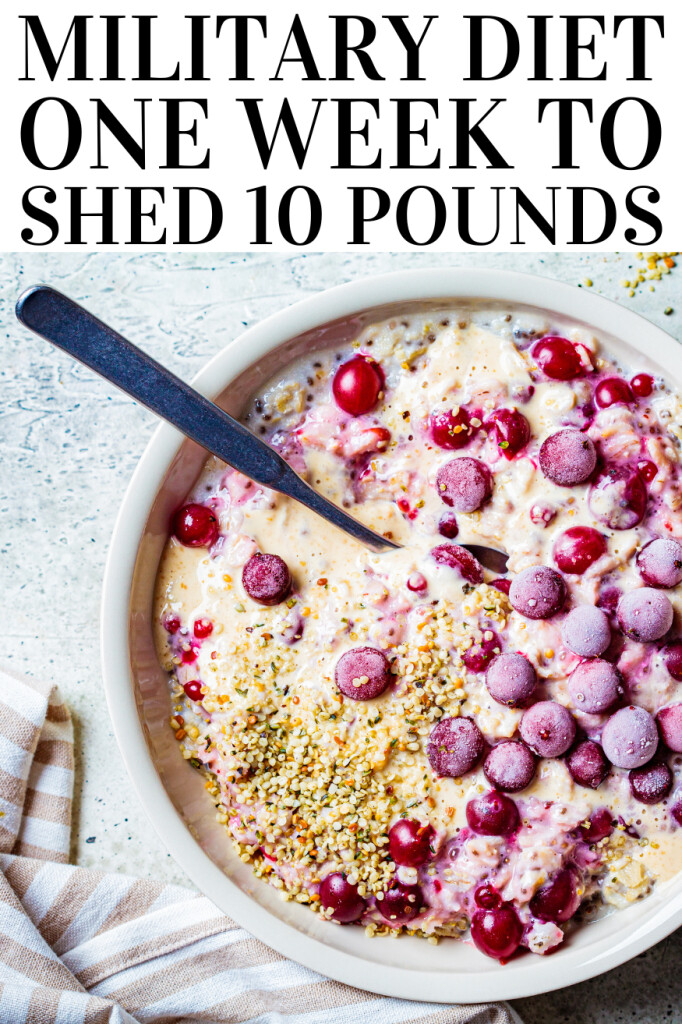
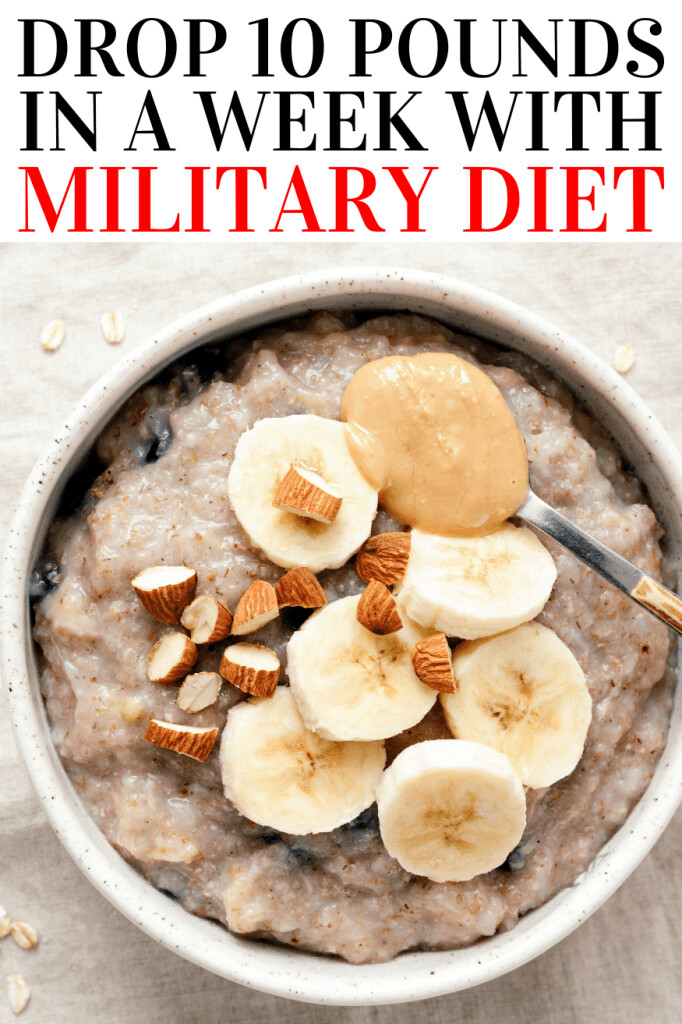
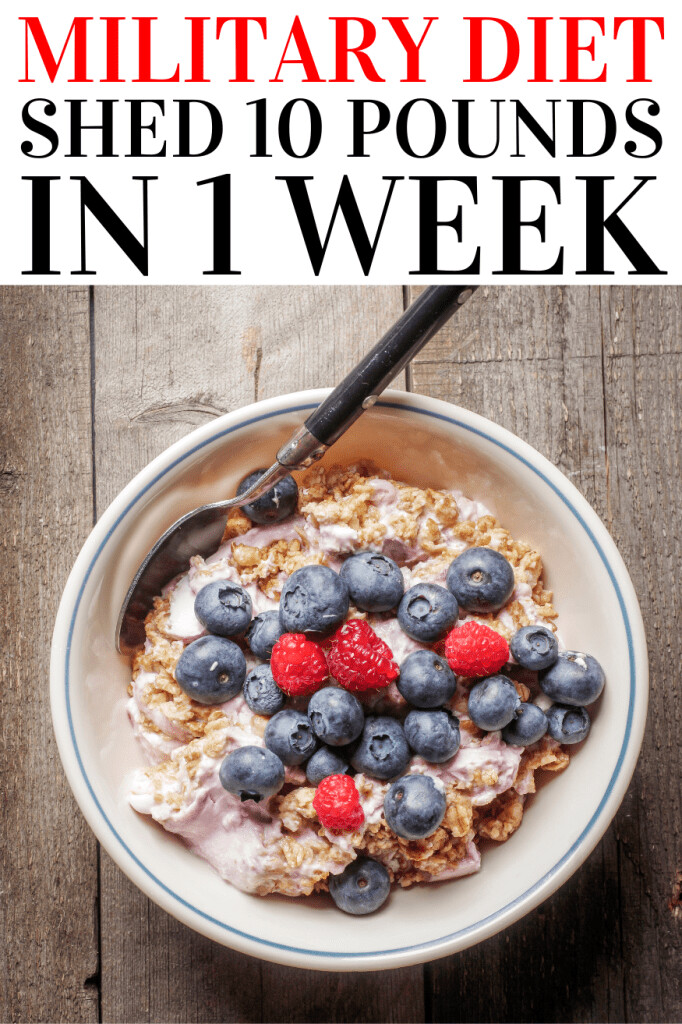
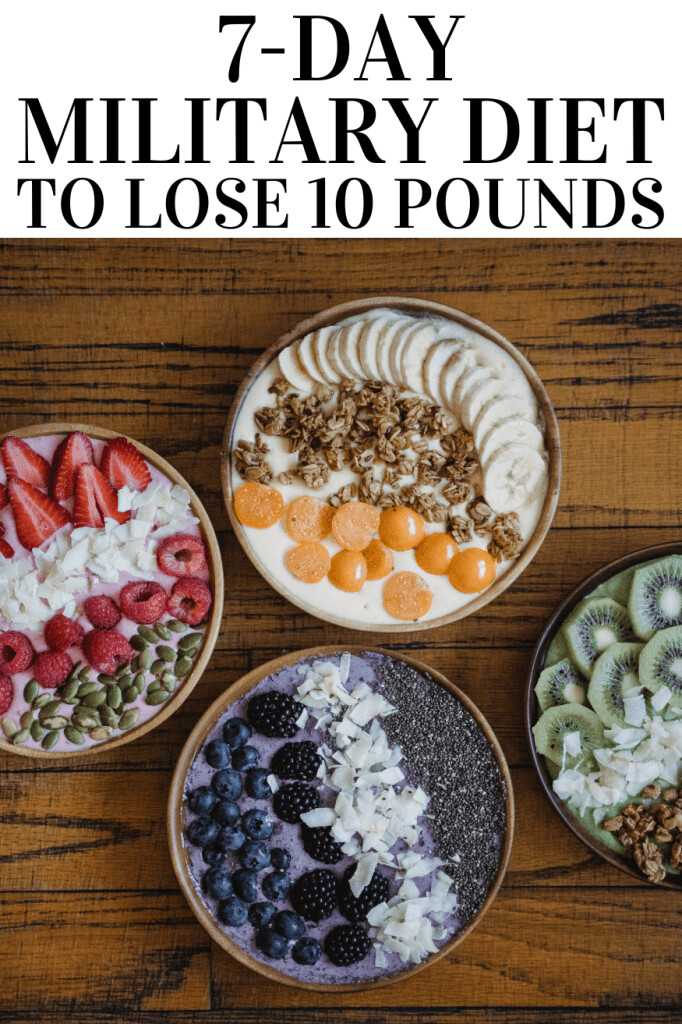
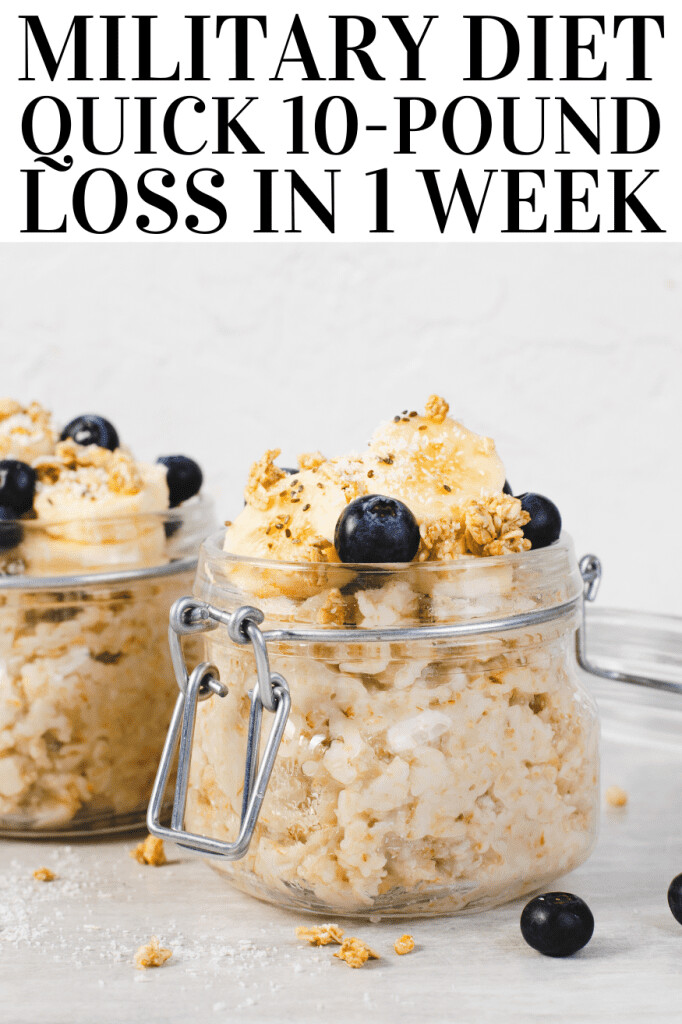
- Save for Later2.3K


